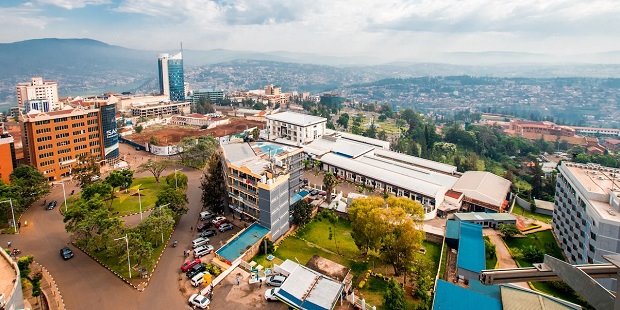
TotalEnergies has joined Rwanda’s energy market as the country seeks to increase investment in renewable energy and electric mobility.
TotalEnergies that operates in more than 133 countries signed an agreement with the Rwanda Development Board, which will see more electric charging stations installed in Kigali, as well as other initiatives.
The signing of the Memorandum of Understanding took place in Kigali after President Paul Kagame received the Chairman and CEO of Total Energies, Patrick Pouyanné during his one-day visit to the country.
“This collaboration agreement illustrates TotalEnergies commitment to deploying its multi-energy strategy in Africa, particularly in Rwanda, a country with a booming economy,” Mr Pouyanné said.
The agreement comes as Rwanda looks to increase investment in the energy sector, including electric mobility with electric cars and motorcycles already becoming popular in Kigali.
In June 2021, the Rwanda Environment Management Authority in partnership with the United Nations Development Fund (UNDP) launched a project that targeted to put over 26,000 electric motorcycles on the country’s roads.
More companies have expressed interest in investing in electric mobility, including Ampersand Rwanda, which recently secured a $9 million loan facility from the US International Development Finance Corporation (DFC) to expand its operations in Rwanda and Kenya.
There is also Safi Ride, an E-Mobility rideshare company that operates in Kigali.
Although Rwanda has invested in promoting electric mobility, which requires charging stations and more electricity, the country still lags behind its target of all Rwandans having access to electricity by 2024 from the current 67 percent.
According to a statement by the company, the agreement with TotalEnergies includes distributing and supplying energy products like LPG, developing power storage solutions and natural-based solutions for carbon storage, and initiating training programmes on new energies and energy transition.
The company will also work with the local private sector, which is expected to improve local investment in clean energy.
“Partnerships with our private sector companies in Rwanda and beyond is timely for a country that puts the environment at the heart of its development strategies.
Additionally, the skills transfer in critical areas such as renewable energies and energy transition will undoubtedly contribute to the development of local expertise in the energy sector,” said Clare Akamanzi, CEO of the Rwanda Development Board.